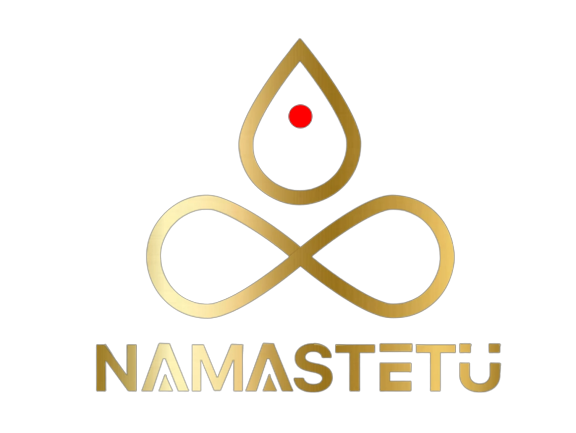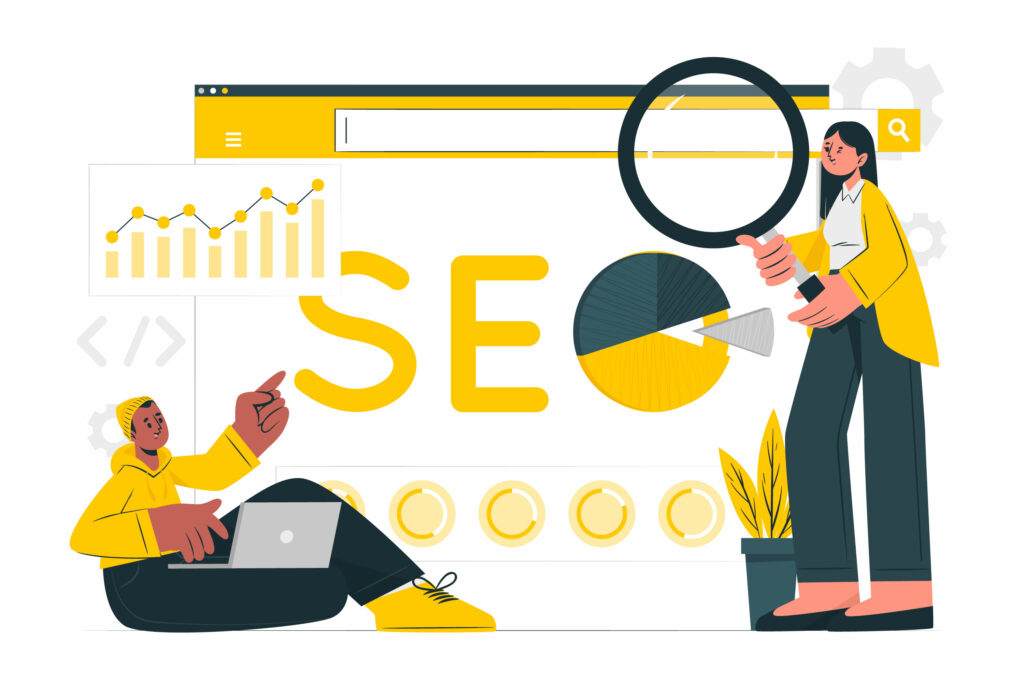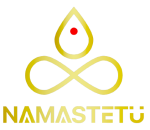In the contemporary digital world where the internet has taken the position of the main source of data for millions worldwide, SEO (Search Engine Optimization) is just about the most important thing for anyone with a digital presence. Whether you are a business owner, a content creator, or an inquiring person understanding the basics of SEO will greatly improve your online exposure and performance. In this guide, we will closely explain SEO, finding out what it means, and how it works.
Understanding SEO (Search Engine Optimization) and It’s basics
SEO, at its core, is the practice of optimizing your website and its content to rank higher in search engine results pages (SERPs). But why does ranking matter? Consider this: when was the last time you scrolled beyond the first page of Google search results? Chances are, it’s been a while. Studies show that the majority of clicks go to the top results, making a high ranking synonymous with increased visibility and traffic.
Search engines like Google use complex algorithms to crawl, index, and rank websites based on various factors, including:
- Relevance and quality of content
- Website structure and architecture
- Technical aspects (site speed, mobile-friendliness, etc.)
- User experience and engagement metrics
- Link popularity and authority
By optimizing these elements, you can improve your website’s visibility and organic search traffic, ultimately driving more potential customers to your business.
Understanding Search Engines
To fully grasp the intricacies of SEO, it’s crucial to gain insight into how search engines operate. Imagine search engines as massive libraries, with billions of web pages stored in their archives. When a user enters a query into a search engine like Google, it’s akin to asking the librarian for book recommendations on a particular topic. However, instead of rifling through physical books, search engines employ complex algorithms to sift through digital content and deliver the most relevant results.
Crawling
Think of crawling as the librarian’s journey through the aisles of the library, scanning book titles and gathering information. Search engine crawlers, also known as bots or spiders, perform a similar task, traversing the vast expanse of the internet, discovering new web pages, and indexing them for future reference. Crawling is essential because it allows search engines to keep their indexes updated with the latest online content. Without crawling, new pages would remain undiscovered and excluded from search results, limiting users’ access to valuable information.
Indexing
Once the crawler collects information about a web page, it’s added to the search engine’s index, essentially a massive catalog of all the content it has encountered. This index allows search engines to retrieve relevant pages quickly when a user submits a query. Indexing is like organizing books in a library based on their topics, authors, or genres. It enables search engines to categorize and store web pages efficiently, making it easier to retrieve them when needed. Without indexing, search engines would struggle to deliver accurate and timely search results, leading to a poor user experience.
Ranking
Here’s where the magic happens. When a user enters a query, the search engine sifts through its index to find the most relevant pages. However, not all pages are created equal. Search engines employ complex algorithms to evaluate factors like relevance, authority, and usability to determine the ranking of each page in the search results. Relevance refers to how closely a web page’s content matches the user’s query. Authority is a measure of the page’s credibility and trustworthiness, often determined by the number and quality of backlinks pointing to it. Usability encompasses factors like page load speed, mobile-friendliness, and overall user experience. By considering these factors, search engines strive to deliver the most valuable and useful results to users.
From User Perspective
The described processes can be a chance for the users to make a quicker choice out of the big range of search engines. Through being able to filter their searches the way that they need to and adhering to the guidelines that the search engines set, users can easily and quickly find what they were looking for. For instance, the users can realize that the informative pages located at the top of the result pages of search engines, are commonly from trustworthy sources. It is also essential that you will have the knowledge of sites that show seamless viewing across devices.
For Dubai, UAE Businesses Perspective
First and foremost, for company growth, it is imperative to involve oneself in the working of search engines for ultimate online success. Through development of high-value, relevant and user-friendly content of the website and search engine optimization, the business can appreciate good visibility in search results and it can increase organic traffic, thus driving conversion and other goals. Businesses, therefore, are now able to capitalize on the information of search engine analytics for the purpose of getting to know better their audience and adapting the content and marketing plans to the contemporary world.
cordingly. By following the changes of the algorithms updated and the trends occurred in the industry, companies will be able to create flexible SEO strategies which can give them a better competition in digital industry that always changing. Actually, Search engine optimization is not only about improving search ranking, the reasons for this is to deliver worth, build a stronger online presence and resonate with the target audience.
The Importance of SEO for Dubai, UAE Businesses
Dubai, UAE is a thriving business hub, with a highly competitive market across various industries. As more businesses establish an online presence, the competition for top search rankings becomes fiercer. Here are a few reasons why SEO is crucial for businesses in Dubai, UAE:
- Increased online visibility and brand awareness
- Targeting local customers through location-specific keywords e.g., digital marketing Company or agency in Dubai, UAE
- Cost-effective marketing strategy compared to paid advertising
- Building trust and credibility with higher search rankings
- Improved user experience and engagement
By partnering with a reputable digital marketing agency in Dubai, UAE,UAE that offers SEO service in Dubai, UAE businesses can stay ahead of the competition and attract more qualified leads and customers.
The Anatomy of SEO
Search engine optimization (SEO) is like a well-orchestrated symphony, with various components working together harmoniously to achieve the desired result – higher search engine rankings and increased organic traffic. While the world of SEO can seem complex, it can be broken down into two main categories: on-page SEO and off-page SEO.
Keywords and Content Optimization:The Dynamic Duo of SEO
Keywords are the backbone of SEO. These are the terms and phrases users type into search engines when looking for information. Effective keyword research helps identify the words and phrases your target audience is using, allowing you to tailor your content accordingly. Content optimization involves strategically incorporating keywords into your content while ensuring it remains valuable and engaging for readers.
In the world of search engine optimization, keywords and content are like two peas in a pod – inseparable and essential for success. Just as a well-written book needs a compelling narrative and carefully chosen words, your website’s content must be crafted with both your target audience and search engines in mind.
Keywords: The Guiding Stars of Your Content Strategy
Keywords are more than just individual words; they represent the language your potential customers use to express their needs, wants, and questions online. Effective keyword research is like embarking on a treasure hunt, uncovering the terms and phrases that resonate with your target audience and aligning your content strategy accordingly.
But keyword research isn’t a one-time endeavor – it’s an ongoing process of staying attuned to the ever-evolving search landscape and user behavior. As new trends and consumer preferences emerge, your keyword strategy should adapt to ensure your content remains relevant and discoverable.
Some key aspects of keyword research and optimization include:
Understanding Search Intent : Going beyond individual keywords to decipher the underlying motivations and goals behind users’ searches. Are they looking for information, ready to make a purchase, or seeking a specific service?
Identifying Long-Tail Keywords : While broad, high-volume keywords can be competitive, long-tail keywords (longer, more specific phrases) often represent lower-hanging fruit with clearer search intent and potentially higher conversion rates.
Leveraging Keyword Research Tools: Utilizing tools like Google Keyword Planner, Ahrefs, SEMrush, and others to uncover keyword opportunities, analyze search volumes, and gauge competition levels.
Monitoring Keyword Performance : Regularly tracking your rankings and organic traffic for target keywords, allowing you to adjust your strategy as needed and capitalize on emerging trends.
Content Optimization: The Art of Balancing Value and Relevance
With your target keywords in hand, the next step is to create content that not only incorporates those terms strategically but also delivers genuine value and engagement for your audience. It’s a delicate balance between optimizing for search engines and crafting a compelling user experience.
Effective content optimization involves:
Natural Keyword Integration: Seamlessly weaving your target keywords and related terms into your content in a way that feels natural and unforced, avoiding keyword stuffing or awkward repetition.
Comprehensive Content Coverage – Providing in-depth, informative coverage of your topic, answering common questions and addressing various angles and nuances related to your target keywords.
Engaging and Scannable Structure Organizing your content with clear headings, bullet points, and multimedia elements (images, videos, etc.) to improve readability and keep users engaged.
Ongoing Content Updates Regularly refreshing and updating existing content to ensure it stays relevant, accurate, and aligned with the latest search trends and user preferences.
By striking the perfect balance between keyword optimization and exceptional content quality, you’ll not only improve your search engine visibility but also foster a loyal audience of satisfied readers who keep coming back for more.
Remember, keywords and content are the dynamic duo of SEO – when crafted and optimized in harmony, they can unlock a world of organic traffic and business growth opportunities.
On-Page Optimization: Crafting a Search Engine-Friendly Website
As a site owner or as a marketer, you may be aiming at having your pages to rank highly in search engine results in order to make it easy for customers to locate your products without much effort. The on-page-optimization is a vital element in the puzzle, it helps to make the contents of the website more attractive and valuable for the search engines such as Google.
High-Quality, Engaging Content is Key
Think of your website as a book – the more well-written, informative, and engaging the content, the more likely people (and search engines) are to appreciate and recommend it. When creating content, focus on providing real value to your target audience by:
– Conducting thorough research on their interests, pain points, and frequently asked questions
– Writing in a clear, conversational style that’s easy to understand
– Breaking up text with descriptive headings, bullet points, and multimedia elements like images or videos
– Naturally incorporating relevant keywords and related phrases throughout the content
Remember, search engines are getting smarter at identifying thin, low-quality content designed solely for ranking purposes. By prioritizing genuine helpfulness over keyword stuffing, you’ll create a better user experience and improve your chances of ranking well.
Strategic Keyword Placement Matters
While overusing exact-match keywords can hurt your rankings, strategically placing them in important areas of your pages can signal their relevance to search engines. Some key areas to include your target keywords and related terms include:
– Page titles and meta descriptions
– Headings and subheadings
– Body content and image alt text
– URLs and anchor text for internal links
The key is to use keywords naturally and avoid awkward repetition or stuffing. Search engines are looking for semantic relevance, not just exact keyword matches.
Structure and User Experience Go Hand-in-Hand
Have you ever landed on a website that felt like a maze, with confusing navigation and poorly organized content? Search engines have a similar experience when crawling disorganized websites. By creating a logical, user-friendly structure with clear hierarchies and navigation, you’ll not only improve the experience for human visitors but also make it easier for search engines to understand and index your content effectively.
Some best practices for optimizing your website’s structure include:
– Using descriptive, keyword-rich URLs
– Implementing breadcrumb navigation for better site architecture
– Optimizing page load times and performance
– Ensuring mobile-friendliness and responsive design
– Utilizing schema markup to enhance search result snippets with rich information
Internal Linking Helps Search Engines Understand Your Site
Think of internal linking as creating a roadmap for search engines to follow as they crawl your website. By strategically linking related pages and using descriptive anchor text, you can help search engines better understand the context and relevance of your content. Additionally, a well-planned internal linking strategy can improve user experience by making it easier for visitors to navigate and discover relevant information on your site.
Remember, on-page optimization is just one piece of the SEO puzzle. To truly maximize your search engine visibility and organic traffic, you’ll need a comprehensive strategy that also addresses off-page factors like link building, technical SEO, and local optimization (if targeting a specific geographic area like Dubai, UAE).
However, by crafting a search engine-friendly website with high-quality, well-structured content and a user-centric approach, you’ll be setting a solid foundation for success in the ever-evolving world of search.
Technical SEO
Technical SEO deals with the backend aspects of website optimization, ensuring that search engines can crawl and index your site efficiently. Technical SEO focuses on optimizing the technical aspects of your website to ensure search engine crawlers can access and index your content effectively. This involves:
- Improving site speed and performance
- Ensuring mobile-friendliness and responsive design
- Fixing broken links and errors
- Implementing SSL/HTTPS for website security
- Optimizing sitemaps and robots.txt files
Off-Page Optimization
Off-page optimization refers to the activities you undertake outside of your website to improve your search rankings. The most significant factor in off-page optimization is link building, which involves:
- Acquiring high-quality, relevant backlinks from authoritative websites
- Creating shareable and linkable content (e.g., infographics, guides, etc.)
- Building relationships with influencers and industry experts
- Participating in online communities and forums
The Power of Backlinks
Backlinks, or inbound links, are links from other websites pointing to your site. They serve as votes of confidence, indicating to search engines that your content is credible and authoritative. Building high-quality backlinks from reputable sources is a cornerstone of off-page SEO and can significantly impact your site’s rankings.
Measuring Success with Analytics
No SEO strategy is complete without proper measurement and analysis. Tools like Google Analytics provide invaluable insights into your website’s performance, allowing you to track metrics such as organic traffic, keyword rankings, and user engagement. To measure the success of your SEO efforts, you should track and analyze various metrics, such as:
- Organic search traffic and rankings
- Bounce rates and user engagement metrics
- Conversion rates and goal completions
- Backlink acquisition and quality
- Search engine crawl errors and issues
By regularly monitoring these metrics and making data-driven decisions, you can refine your SEO strategy and ensure your website remains competitive in the search engine rankings.
Staying Ahead of the Curve
SEO is not a one-time endeavor but an ongoing process that requires adaptability and innovation. Search engine algorithms are constantly evolving, meaning that what works today may not work tomorrow. Staying informed about industry trends, algorithm updates, and best practices is essential for maintaining and improving your search rankings.
Conclusion: The Ever-Evolving World of SEO
Putting an end to this article, SEO is an intricate craft that forms an integral part in defining the online prosperity of individuals and businesses. By studying the fundamentals of SEO and utilizing efficient strategies, your site can be positioned to attract more visitors, turn them into organic traffic and ultimately, realize your online objectives.
Do not forget that SEO is a gradual process rather than a sprint and success, therefore, will require your patience, dedication and the ability to adjust to the continuously changing digital realm.
As you own or manage a business or a marketing consultant in Dubai, the thriving city, you realize that the only effective online presence is what might cause your success. In our digitalized period search engine optimization (SEO) is not an elective marketing practice – it is crucial to businesses of all decent amounts and fields to prosper.
At Namastetu Technologies, we are the top-notch digital marketing agency in Dubai,UAE that focuses on SEO marketing and gives your business new varieties to grow and succeed in the highly competitive market. But our services are not just limited to SEO we are also into Social Media Marketing, Website design and development as well. Our well-versed group of talented individuals will always stay in the loop, applying current news and adapt to new algorithm updates and industry standards.




